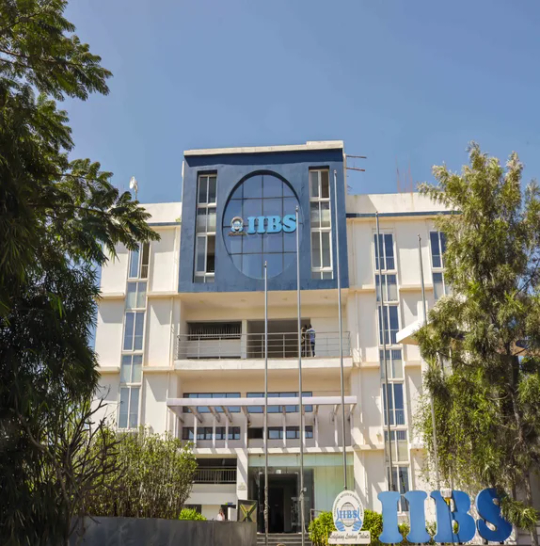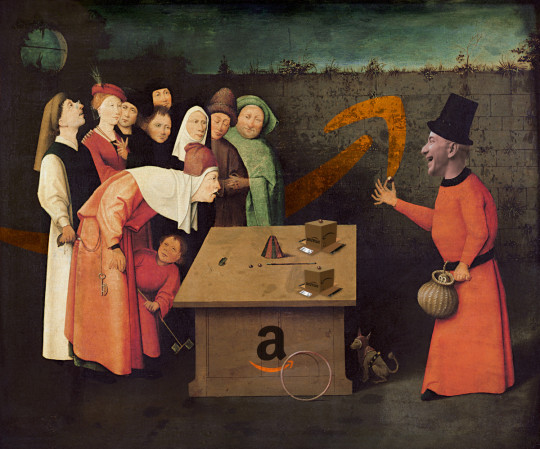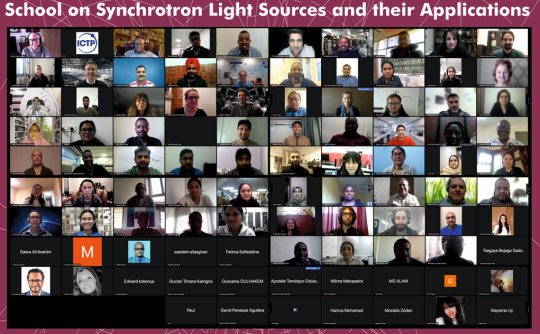#International Institute of Business Studies
Explore tagged Tumblr posts
Text
Build Your Future at International Institute of Business Studies

Unlock career opportunities with the International Institute of Business Studies. Offering industry-focused programs, expert faculty, global exposure, and strong placements, IIBS prepares students for success. Gain hands-on experience, leadership skills, and access to top recruiters. With modern infrastructure and scholarship opportunities, start your journey toward a bright future. Join the International Institute of Business Studies today!
0 notes
Text
International Institute of Business Studies (IIBS) – A Premier Destination for Management Education
The International Institute of Business Studies (IIBS) is a leading institution dedicated to providing high-quality management education in India. Renowned for its commitment to academic excellence, industry-oriented curriculum, and strong placement records, IIBS has emerged as a preferred choice for students aspiring to build successful careers in business and management.

About IIBS
Established with the vision of nurturing future business leaders, IIBS offers a comprehensive learning environment that blends theoretical knowledge with practical exposure. The institute focuses on innovative teaching methodologies, ensuring students gain insights into real-world business challenges. With state-of-the-art infrastructure, highly qualified faculty, and a robust industry network, IIBS provides a conducive platform for holistic development.
Courses Offered
IIBS offers a variety of management programs tailored to meet the evolving needs of the business world. These include:
Master of Business Administration (MBA) – A flagship program designed to develop leadership, strategic thinking, and analytical skills.
Post Graduate Diploma in Management (PGDM) – A specialized course offering in-depth knowledge of business dynamics.
Bachelor of Business Administration (BBA) – An undergraduate program that lays a strong foundation in management principles.
These programs are designed to provide industry-relevant knowledge, empowering students to excel in their careers.
Why Choose IIBS?
1. Exceptional Faculty
IIBS boasts a team of experienced professors and industry experts who bring valuable insights from diverse sectors. Their expertise ensures students receive a well-rounded education aligned with global business trends.
2. Industry-Oriented Curriculum
The institute designs its curriculum in collaboration with industry leaders, ensuring that students learn practical applications of business concepts. The focus on case studies, live projects, and internships helps bridge the gap between academics and industry requirements.
3. Cutting-Edge Infrastructure
IIBS provides a modern learning environment with well-equipped classrooms, a digital library, high-tech laboratories, and recreational facilities. This enriches the learning experience, making education engaging and interactive.
4. Global Exposure
With a focus on international collaborations, IIBS offers students the opportunity to participate in global exchange programs, workshops, and conferences. These initiatives help students gain exposure to global business practices and widen their career prospects.
5. Strong Placement Assistance
One of the key strengths of IIBS is its impressive placement record. The institute maintains strategic tie-ups with top corporate firms, ensuring that students get access to lucrative job opportunities in reputed organizations. The dedicated placement cell conducts training sessions, mock interviews, and career counseling to enhance employability skills.
Campus Life at IIBS
IIBS promotes a vibrant campus culture that fosters holistic development. The institute organizes various seminars, workshops, cultural events, and business competitions to enhance students’ personal and professional growth.
Additionally, students can participate in clubs and associations focused on areas like entrepreneurship, marketing, finance, and leadership development. Such activities encourage teamwork, networking, and creativity, preparing students for leadership roles in the corporate world.
Admissions and Eligibility
Admission to IIBS programs is based on merit, with students required to meet academic qualifications and entrance exam criteria. Candidates can apply through national-level entrance exams like CAT, MAT, XAT, or direct admission processes based on eligibility.
Conclusion
The International Institute of Business Studies (IIBS) is a premier institute committed to shaping dynamic and competent business professionals. With its industry-focused education, world-class infrastructure, and strong placement support, IIBS stands as a gateway to exciting career opportunities in the corporate world.
Aspiring management students looking for a transformative learning experience and a platform to launch their careers should consider IIBS as their destination for quality business education.
0 notes
Text
MBA in International Institute of Business Studies - Admission, Specializations & Career Opportunities
Discover the MBA program at the International Institute of Business Studies (IIBS). Explore details on admission requirements, course specializations, faculty, and career opportunities. Prepare for a successful business career with top-notch education from IIBS.
#mba#mba colleges in india#mba in india#MBA IN International Institute of Business Studies#International Institute of Business Studies
0 notes
Text
Elevate Your Career with the International Institute of Business Studies (IIBS)
The International Institute of Business Studies (IIBS) offers top-notch business education with industry-relevant programs. Known for its excellent faculty and global exposure, IIBS equips students with the skills and knowledge to excel in the competitive business world.
0 notes
Text
International Institute of Business Studies: A Gateway to Success

The International Institute of Business Studies (IIBS) is one of the top-notch institutions in India, offering quality education in business and management. Known for its student-centric approach, the institute provides a strong foundation for aspiring managers and entrepreneurs. With its state-of-the-art facilities, experienced faculty, and industry-relevant curriculum, the International Institute of Business Studies is the perfect choice for students looking to excel in their careers.
Why Choose International Institute of Business Studies?
The International Institute of Business Studies stands out among other institutions for its focus on holistic development. It not only emphasizes academics but also nurtures essential skills like leadership, communication, and critical thinking. Here are some key reasons why students prefer this institute:
1. Industry-Oriented Programs
The International Institute of Business Studies offers a wide range of undergraduate and postgraduate programs tailored to meet the demands of the corporate world. The curriculum integrates theoretical knowledge with practical applications, ensuring students are job-ready upon graduation.
2. Experienced Faculty
At the International Institute of Business Studies, students learn from highly qualified and experienced faculty members who bring industry insights into the classroom. Their mentorship helps students understand real-world challenges and equips them to tackle them effectively.
3. Modern Infrastructure
The institute boasts modern classrooms, well-equipped libraries, computer labs, and recreational facilities. These resources provide students with a conducive learning environment, fostering innovation and creativity.
4. Global Exposure
The International Institute of Business Studies emphasizes global exposure through international collaborations, exchange programs, and guest lectures by global business leaders. This prepares students to compete in the global market.
5. Focus on Placements
Placement is a significant aspect of the International Institute of Business Studies. The institute maintains strong ties with leading companies, ensuring excellent job opportunities for its students. The dedicated placement cell conducts training sessions, mock interviews, and resume-building workshops to help students secure their dream jobs.
Programs Offered at International Institute of Business Studies
The International Institute of Business Studies offers a variety of programs catering to different interests and career goals. Some of the popular courses include:
Bachelor of Business Administration (BBA): This undergraduate program provides a solid foundation in business principles and prepares students for managerial roles.
Master of Business Administration (MBA): The flagship program at the institute, the MBA, focuses on specialization areas like marketing, finance, human resources, and international business.
Postgraduate Diploma in Management (PGDM): This program is designed for students seeking advanced knowledge and skills in business management.
Student-Centric Learning at International Institute of Business Studies
The International Institute of Business Studies believes in a student-first approach. The institute organizes regular workshops, seminars, and extracurricular activities to ensure all-round development. Here’s how students benefit from its learning model:
Practical Training: Through internships, live projects, and case studies, students gain hands-on experience.
Skill Development: Soft skills training, leadership programs, and group discussions help students enhance their personal and professional skills.
Entrepreneurship Support: The institute encourages budding entrepreneurs by providing mentorship, incubation centers, and funding opportunities.
Placement Success at International Institute of Business Studies
One of the most compelling reasons to choose the International Institute of Business Studies is its exceptional placement record. The institute has consistently achieved impressive placement rates, with students securing positions in top multinational companies. Recruiters appreciate the quality of students graduating from IIBS, making it a preferred destination for hiring talent.
Some notable recruiters include:
Deloitte
Ernst & Young
Infosys
Amazon
Tata Consultancy Services (TCS)
The average salary package offered to graduates is competitive, and many students achieve placements with high-paying roles, thanks to the rigorous training provided by the placement cell.
Admission Process for International Institute of Business Studies
Getting into the International Institute of Business Studies is a straightforward process. Students need to follow these steps:
Eligibility Criteria:
For undergraduate programs, students must have passed their 12th-grade exams with a minimum required percentage.
For postgraduate programs like MBA, a bachelor’s degree is mandatory. Some courses may require valid entrance exam scores like CAT, MAT, or XAT.
Application: Interested students can apply online through the institute’s official website or visit the campus for offline applications.
Selection Process: The selection is based on academic performance, entrance test scores, and a personal interview.
Why Students Recommend International Institute of Business Studies
Students who graduate from the International Institute of Business Studies often speak highly of their experiences. They commend the supportive faculty, interactive learning environment, and the focus on employability. The institute has earned a reputation for transforming students into confident, skilled professionals.
Final Thoughts
The International Institute of Business Studies is more than just a college; it’s a platform for building a successful future. With its comprehensive programs, excellent facilities, and strong placement support, it ensures students are well-prepared to face the challenges of the professional world. For anyone looking to pursue a career in business and management, the International Institute of Business Studies is undoubtedly a great choice.
0 notes
Text

𝑻𝑨𝑳𝑲 𝑻𝑶𝑶 𝑴𝑼𝑪𝑯
wanderer finds a way to ease your insecurities after you overhear some rumors
⟡ content: wanderer x gn!reader ; established relationship ; reader is a student at the akademiya ; reader feeling a bit insecure about their relationship with wanderer ; but he knows a good counter :) ; the vibe i was going for was silly and sweet hehe ; 2k w/c
⟡ a/n: i did proofread and edit this, but i was a little sleepy in the process, so apologies for any glaring errors! i hope you enjoy, mwah !
━━━━━━━━━━━━━━━━━━━━━
Just because the Akademiya was one of the leading institution for academics in Teyvat doesn’t mean that its students are all about studies. Gossip and rumors were some of the biggest sources of entertainment to come out of its lecture halls and labs.
Though many of these tales were unfalsifiable, students did not need to adhere to rigorous experimental principles when it came to coming up with stories. It all started with the story that the building Vahumana scholars studied in was haunted. Apparently, a Vahumana researcher had brought home an ancient relic they weren't supposed to from the ruins of one of their expeditions. This relic held a spirit who had been a revered warrior in ages long past. Angered at being removed from their station, the spirit now stalked the halls, trying to enact revenge on the person that committed this heinous act. If objects were knocked over by an unseen force, and the air grew chilly, it was said to be a sign that the spirit was near. From then on, many other stories began to rise, each to varying degrees of popularity.
Wanderer thought all of this to be absolute rubbish.
But, he did find the deliberate arousal of widespread fear to be quite amusing. Spread by the students themselves, no less. Mortals were certainly interesting creatures. He also loathed these rumors and tales popping up because he found himself to be wrapped up in one himself:
Hat guy is dating someone famous!
Someone had seen Wanderer on a date and, to everyone’s complete shock, being intimate. But, it was only from a distance, so they couldn’t figure out their identity. Thus, the speculations began. Wanderer wished everyone would just mind their own business.
As an Akademiya student yourself, you have also heard many of these stories during your time here. And as Wanderer’s partner, the ones about his romantic relationship was something you’d wish you heard less of. Unfortunately, you were now within hearing distance of an excited group of students talking about exactly that. They were seated at one of the public tables used for studying, though they were doing very little of it.
“Guess what?!” one of them exclaimed. “I saw Hat Guy the other day with his mystery partner.”
The rest of the group erupted into gasps. Is this some kind of Hat Guy fan club? you couldn’t help but wonder.
You stood innocently by the message board a ways from them, pretending to check and read if any new information had been added whilst your ears remained perked.
“No way! Did you find out who they were?”
“I had to rush of to class before I could sneak by them!” the witness of your date huffed. “I wouldn't have to do all this if he wasn't so secretive about this.”
Two days ago, you had indeed met up with Wanderer between classes, sitting by one of the more secluded gazebos in Razan Garden. You both weren’t actively trying to keep your relationship a secret, rather, you just enjoyed your privacy more.
One of them folded their arms rather decisively. “It has to be a celebrity. With how haughty he is, there’s no way that Hat Guy would settle for anyone who wasn’t some renowned star.”
Hey, that’s a bit rude! you protested internally. They don’t have to be a renowned star…
“That’s why he’s being so hush-hush about it, so it doesn’t become a huge scandal.”
“They must be jaw-droppingly gorgeous then. Only the best for the leading scholar of Vahumana,” agreed another, with loving sigh that made your eye twitch.
You pouted to yourself. Sure, you thought you were somewhat pretty, but not anything jaw-dropping… Hang on, why were you giving into these strangers’ silly speculations?
“Could they be a performer from Fontaine? I heard they have a grand Opera there.”
“They’re probably a vision wielder as well!”
“Yeah, definitely not some ordinary student like us.”
“Or maybe they’re a famous bard from Mondstadt—”
The group turned into a flurry of chatter as they continued with their guesswork. Your time here was up. You didn’t feel like listening any longer.
Some ordinary student… you repeated in your head. It wasn’t untrue, but the way it was said by them made it seem completely absurd for Wanderer to even consider dating someone like you.
Just as you turned to walk away, you jumped at a sudden noise.
An open door to an empty classroom had slammed shut. The sharp thud echoed throughout the space.
The chatter from the students immediately ceased.
They began to laugh uneasily. Surely that was just caused by a simple strong draft. The laughing faded when the books and loose parchment on their table were suddenly pushed to the side, the lighter of these items tumbling to the floor. They all stood up, horror frozen on their faces. The air grew noticeably cooler. Wind swept in, causing the papers pinned to the message board in front of you to flutter.
“I-it’s the ghost!” one of the students shrieked, pointing to one of the doorways that led into this central space. “The ghost of the Vahumana building!”
A figure loomed at the threshold, a sinister air surrounding them.
The group of students snatched their bags and rushed as fast as they could away, scrambling for the exit in the opposite direction. Their urgency greatly juxtaposed against your nonreaction.
There was just something about the figure that was all too familiar.
Stepping into the lit space, the figure ruffled a hand in his violet hair. Annoyance was twisted on his face.
“Using your anemo on Akademiya grounds?” you asked with a quirk in your brow.
Wanderer let out a huff, walking towards you. “For good reason. Not only were those students talking nonsense, they had the audacity to be loud about it too.”
Since there was no one around at the moment, you felt comfortable enough to bring up a hand to tidy his hair up. Though he gave a begrudged sigh, Wanderer leaned into your touch as you combed your fingers through it.
“I didn’t know you were the ghost of the Vahumana building,” you teased, moving an index finger down to poke at his cheek. “You seem pretty corporeal to me.”
“That ridiculous story again?” Wanderer responded, swatting at you to stop. “Humans seek out information that already confirms their previous beliefs. They saw whatever they wanted to see.”
Even though he shrugged as he spoke, Wanderer was unmistakably satisfied with the result of his doings. As he was heading to meet up with you to head home together, he heard that group of students yapping away about his relationship and saw your discomfort at their rudeness. He needed them gone and gone fast. So, he conjured up his most basic form of anemo. Even that was enough to send them scurrying away like mice.
━━━━━━━━━━━━━━━━━━━━━
You both were bathed in the warm sun as you walked through the streets of Sumeru City. It was a lively afternoon, with people bustling about to run errands or savor the perfect weather. Usually, you’d also relish in a day like this, but your attention was elsewhere. The conversation those students had repeated frustratingly in your mind, as much as you didn’t want it to affect you. Your focus returned just in time for you to move away as a woman carrying several boxes of Harra fruit almost sent you toppling over.
“Be careful there!” she called before moving on her way.
You shouted an apology, shaking your head in an attempt to return to your senses. Wanderer frowned, tugging at your arm to pull you closer to him.
"Are you going to spit it out?”
Though you hadn’t done anything wrong, you still felt like you’d been caught.
”Spit what out?” you answered.
“Don’t act like you don’t know,” he said, glowering at you. “You’ve been acting strange since we left the Akademiya.”
Turning the corner into the more residential area of the city, the streets grew less busy, save for the occasional resident tending to their garden outside or taking a walk with their family.
There was no keeping anything from Wanderer with his senses and hard-headedness. You probably had a better chance with hiding a Sumpter Beast under a blanket.
“I was just thinking about what those students were talking about back at the Akademiya. You know, about who you were dating.”
“They were saying: Oh, they must be some kind of celebrity, or famous adventurer with a really cool vision who’s super incredibly gorgeous and isn’t just some nothing student,” you mimicked with disdain.
Wanderer cocked his head to the side. “And that was verbatim?”
“Yes, yes it was!” you nodded emphatically, ignoring his pointed sarcasm. “It just had me feeling I don’t know…”
Wanderer didn’t say anything more as your sentence trailed off. He simply looked at you, expectantly. The sound of your feet hitting the paved road rung clear in the air, every step pushing you to admit what you were truly feeling.
“I just felt a bit insecure!” you blurted out.
Sighing, the words began to tumble from you.
“Like if this is the kind of image people have about who’s dating you, once they see me they’ll start to think: Why on Teyvat is he dating that person? Which will make me think: Why on Teyvat are you dating me?”
“And I know, it’s horrible to think like this, and I don’t want doubt your reasons for liking me, but I just can't help it. So, now I’m starting to worry whether you'd prefer someone else—”
Your rambling stopped short.
Not because you had lost your train of thought, but because there was something physically preventing you from continuing.
Your lips was being covered by Wanderer’s own.
Your mind finally registered that he was kissing you in the middle of the street, only a few blocks away from your home.
Protests of stopping him fizzled away as you relaxed in his hold. His hand moved up to rest at the base of your neck and you gave in to the soft coolness of his lips. Wanderer’s kisses always had a hunger behind them, but there was something else now too.
Frustration.
Like he was trying to send you some kind of message each heated movement. When he finally pulled away, your body was left with tingles and you were still enveloped in his gentle scent of linen and parchment.
Wanderer silently admired the flush he left on your lips—the colour of ripened Zaytun peaches. He lightly tapped the side of your forehead with a finger, almost in scolding.
“You’re really that affected by the stupid things other people say?” he chided.
You blinked at him, still slightly dazed by his previous stunt.
He continued, with a sincerity to his voice that gave you pause, “Isn’t the proof you need right here? I chose you. So no, I wouldn’t want some famous superstar, or whatever, because they wouldn’t be you.”
Your mouth parted at such an open confession. Wanderer couldn’t handle the joy swimming in your eyes and turned away, hiding his own buzzing feeling that rose within him with a long sigh.
“I can’t believe you’re feeling like this when we’re walking to our shared home together,” he muttered, starting to walk again.
You kept up by his side, hands behind your back. You almost felt like skipping now down this street.
“Do you think you could say all that one more time?” you asked, the question filled with mirth.
“Nope.”
“Please?”
“Nope,” Wanderer, again, immediately replied.
“But what if I need more reassurance?”
You angled yourself to try and meet his gaze, hoping that the pleading in your expression would better convince him. However, he seemed to be notably avoiding your eyes. Unconsciously, Wanderer’s eyes flicked over to you. In that millisecond, his own resolve crumbled. He groaned aloud.
“Later… then…” he conceded with a mutter.
For all of Wanderer's supposed unwillingness, he would always give you the reassurance you needed in his own mischievous way. Still, he didn’t like how those rumors had so quickly burrowed into you. Perhaps it was time to stamp them all out by showcasing to everyone who he was dating.
━━━━━━━━━━━━━━━━━━━━━
#odorawrites#genshin impact wanderer#genshin wanderer#genshin wanderer x reader#wanderer fluff#wanderer x reader#wanderer x you#wanderer x y/n#scaramouche fluff#scaramouche x reader#scaramouche x y/n#scaramouche x you
889 notes
·
View notes
Text
Astrocartography notes

🌍 Do you want to study abroad? Work abroad? Your MC lines show what domain to pursue:
Sun MC: photographer, actor; check the planet ruling your Sun's zodiac sign for more details
Moon MC: nurse, preschool/elementary teacher, childcare worker/nanny, doula, housekeeper
Mercury MC: librarian, language teacher, speech language pathologist, translator, working in academia, journalist, PR agent, receptionist, secretary, architect, economist, comedian
Venus MC: modelling, artist, fashion designer, hairstylist, makeup artist, art director, interior designer, garden designer, florist, wedding planner
Mars MC: surgeon, firefighter, working at the police, sportsman (the type of sport depends on the zodiac sign Mars is in your birth chart, for ex. Mars in Pisces = football, swimming; Mars in Libra = gymnastics); fitness instructor
Jupiter MC: international driver (driving to your Jupiter MC line brings bonusess💰💰), flight attendant, hotel manager, tour guide, philosopher
Saturn MC: general practitioner, dentist, law, working in the Parliament, working in public institutions, business (CEO), historian, construction worker
Uranus MC: STEM (engineering, ecology sciences, biology), electrician, weather presenter, astronomer/astrophysicist, astrologer, sociology, social worker, advocate for human rights/activist
Neptune MC: choreographer, scenographer, film/theater director, actor, ballet dancer, music composer, rehabilitation worker, bartender, yoga instructor, meditation teacher, reiki practitioner
Pluto MC: adult actor, therapist, psychiatrist, any job regarding forensics (detective, toxicologist, forensic accountant etc.), embalmer, funeral director, loan officer, research analyst
🌍 If you have no astrocartography lines passing through the country you lived for most of your life, you probably don't feel at home in that country and have always wanted to relocate to another country
🌍 When you have atleast 2 lines "conjuncting" each other through a certain country, the planet that is more dominant in your birth chart will have a higher effect in astrocartography
🌍 Mercury IC line can show where one of your siblings or cousins relocate at some point during their life
🌍 If you're a girl and you have daddy issues (hey, we don't judge here!!), travelling to Saturn DSC line will likely bring you lots of opportunities of meeting your perfect partner, but also harsh lessons regarding control in a relationship (this is a good line for you to heal your daddy issues)
🌍 If you want to meet your future spouse and you (personally) find international guys attractive, travelling to Jupiter DSC line is a very good idea. Your future spouse might also be a foreigner in that country, just like you :)
🌍 Sun ASC line shows you where you can find your life's purpose. Also your depression:📉📉 0%, while your happiness:📈📈 100% (unless your Sun is in your 8th or 12th house, then the mental health effect is the complete opposite)
🌍 You could give birth on your Moon IC line😳 or your mom could have given birth to you on that line
🌍 Venus ASC line shows you where you could take lots of pictures (of yourself, of the sightseeings). Also, where you could get diabetes where you will want to try every type of sweets you find there
🌍 You will either get very drunk, consume drugs or smoke some weird shit on your Neptune ASC line (pls take care of your health)
🌍 You could randomly meet an ex or someone who resembles your ex while travelling to your Chiron DSC line
#astro#astro community#astrology#astro placements#astro observations#astro posts#astroblr#astro blog#astro notes#astrocartography#zodiac
2K notes
·
View notes
Text
Amazon’s financial shell game let it create an “impossible” monopoly

I'm on tour with my new, nationally bestselling novel The Bezzle! Catch me in TUCSON (Mar 9-10), then San Francisco (Mar 13), Anaheim, and more!

For the pro-monopoly crowd that absolutely dominated antitrust law from the Carter administration until 2020, Amazon presents a genuinely puzzling paradox: the company's monopoly power was never supposed to emerge, and if it did, it should have crumbled immediately.
Pro-monopoly economists embody Ely Devons's famous aphorism that "If economists wished to study the horse, they wouldn’t go and look at horses. They’d sit in their studies and say to themselves, ‘What would I do if I were a horse?’":
https://pluralistic.net/2022/10/27/economism/#what-would-i-do-if-i-were-a-horse
Rather than using the way the world actually works as their starting point for how to think about it, they build elaborate models out of abstract principles like "rational actors." The resulting mathematical models are so abstractly elegant that it's easy to forget that they're just imaginative exercises, disconnected from reality:
https://pluralistic.net/2023/04/03/all-models-are-wrong/#some-are-useful
These models predicted that it would be impossible for Amazon to attain monopoly power. Even if they became a monopoly – in the sense of dominating sales of various kinds of goods – the company still wouldn't get monopoly power.
For example, if Amazon tried to take over a category by selling goods below cost ("predatory pricing"), then rivals could just wait until the company got tired of losing money and put prices back up, and then those rivals could go back to competing. And if Amazon tried to keep the loss-leader going indefinitely by "cross-subsidizing" the losses with high-margin profits from some other part of its business, rivals could sell those high margin goods at a lower margin, which would lure away Amazon customers and cut the supply lines for the price war it was fighting with its discounted products.
That's what the model predicted, but it's not what happened in the real world. In the real world, Amazon was able use its access to the capital markets to embark on scorched-earth predatory pricing campaigns. When diapers.com refused to sell out to Amazon, the company casually committed $100m to selling diapers below cost. Diapers.com went bust, Amazon bought it for pennies on the dollar and shut it down:
https://www.theverge.com/2019/5/13/18563379/amazon-predatory-pricing-antitrust-law
Investors got the message: don't compete with Amazon. They can remain predatory longer than you can remain solvent.
Now, not everyone shared the antitrust establishment's confidence that Amazon couldn't create a durable monopoly with market power. In 2017, Lina Khan – then a third year law student – published "Amazon's Antitrust Paradox," a landmark paper arguing that Amazon had all the tools it needed to amass monopoly power:
https://www.yalelawjournal.org/note/amazons-antitrust-paradox
Today, Khan is chair of the FTC, and has brought a case against Amazon that builds on some of the theories from that paper. One outcome of that suit is an unprecedented look at Amazon's internal operations. But, as the Institute for Local Self-Reliance's Stacy Mitchell describes in a piece for The Atlantic, key pieces of information have been totally redacted in the court exhibits:
https://www.theatlantic.com/ideas/archive/2024/02/amazon-profits-antitrust-ftc/677580/
The most important missing datum: how much money Amazon makes from each of its lines of business. Amazon's own story is that it basically breaks even on its retail operation, and keeps the whole business afloat with profits from its AWS cloud computing division. This is an important narrative, because if it's true, then Amazon can't be forcing up retail prices, which is the crux of the FTC's case against the company.
Here's what we know for sure about Amazon's retail business. First: merchants can't live without Amazon. The majority of US households have Prime, and 90% of Prime households start their ecommerce searches on Amazon; if they find what they're looking for, they buy it and stop. Thus, merchants who don't sell on Amazon just don't sell. This is called "monopsony power" and it's a lot easier to maintain than monopoly power. For most manufacturers, a 10% overnight drop in sales is a catastrophe, so a retailer that commands even a 10% market-share can extract huge concessions from its suppliers. Amazon's share of most categories of goods is a lot higher than 10%!
What kind of monopsony power does Amazon wield? Well, for one thing, it is able to levy a huge tax on its sellers. Add up all the junk-fees Amazon charges its platform sellers and it comes out to 45-51%:
https://pluralistic.net/2023/04/25/greedflation/#commissar-bezos
Competitive businesses just don't have 45% margins! No one can afford to kick that much back to Amazon. What is a merchant to do? Sell on Amazon and you lose money on every sale. Don't sell on Amazon and you don't get any business.
The only answer: raise prices on Amazon. After all, Prime customers – the majority of Amazon's retail business – don't shop for competitive prices. If Amazon wants a 45% vig, you can raise your Amazon prices by a third and just about break even.
But Amazon is wise to that: they have a "most favored nation" rule that punishes suppliers who sell goods more cheaply in rival stores, or even on their own site. The punishments vary, from banishing your products to page ten million of search-results to simply kicking you off the platform. With publishers, Amazon reserves the right to lower the prices they set when listing their books, to match the lowest price on the web, and paying publishers less for each sale.
That means that suppliers who sell on Amazon (which is anyone who wants to stay in business) have to dramatically hike their prices on Amazon, and when they do, they also have to hike their prices everywhere else (no wonder Prime customers don't bother to search elsewhere for a better deal!).
Now, Amazon says this is all wrong. That 45-51% vig they claim from business customers is barely enough to break even. The company's profits – they insist – come from selling AWS cloud service. The retail operation is just a public service they provide to us with cross-subsidy from those fat AWS margins.
This is a hell of a claim. Last year, Amazon raked in $130 billion in seller fees. In other words: they booked more revenue from junk fees than Bank of America made through its whole operation. Amazon's junk fees add up to more than all of Meta's revenues:
https://s2.q4cdn.com/299287126/files/doc_financials/2023/q4/AMZN-Q4-2023-Earnings-Release.pdf
Amazon claims that none of this is profit – it's just covering their operating expenses. According to Amazon, its non-AWS units combined have a one percent profit margin.
Now, this is an eye-popping claim indeed. Amazon is a public company, which means that it has to make thorough quarterly and annual financial disclosures breaking down its profit and loss. You'd think that somewhere in those disclosures, we'd find some details.
You'd think so, but you'd be wrong. Amazon's disclosures do not break out profits and losses by segment. SEC rules actually require the company to make these per-segment disclosures:
https://scholarship.law.stjohns.edu/cgi/viewcontent.cgi?article=3524&context=lawreview#:~:text=If%20a%20company%20has%20more,income%20taxes%20and%20extraordinary%20items.
That rule was enacted in 1966, out of concern that companies could use cross-subsidies to fund predatory pricing and other anticompetitive practices. But over the years, the SEC just…stopped enforcing the rule. Companies have "near total managerial discretion" to lump business units together and group their profits and losses in bloated, undifferentiated balance-sheet items:
https://www.ucl.ac.uk/bartlett/public-purpose/publications/2021/dec/crouching-tiger-hidden-dragons
As Mitchell points you, it's not just Amazon that flouts this rule. We don't know how much money Google makes on Youtube, or how much Apple makes from the App Store (Apple told a federal judge that this number doesn't exist). Warren Buffett – with significant interest in hundreds of companies across dozens of markets – only breaks out seven segments of profit-and-loss for Berkshire Hathaway.
Recall that there is one category of data from the FTC's antitrust case against Amazon that has been completely redacted. One guess which category that is! Yup, the profit-and-loss for its retail operation and other lines of business.
These redactions are the judge's fault, but the real fault lies with the SEC. Amazon is a public company. In exchange for access to the capital markets, it owes the public certain disclosures, which are set out in the SEC's rulebook. The SEC lets Amazon – and other gigantic companies – get away with a degree of secrecy that should disqualify it from offering stock to the public. As Mitchell says, SEC chairman Gary Gensler should adopt "new rules that more concretely define what qualifies as a segment and remove the discretion given to executives."
Amazon is the poster-child for monopoly run amok. As Yanis Varoufakis writes in Technofeudalism, Amazon has actually become a post-capitalist enterprise. Amazon doesn't make profits (money derived from selling goods); it makes rents (money charged to people who are seeking to make a profit):
https://pluralistic.net/2023/09/28/cloudalists/#cloud-capital
Profits are the defining characteristic of a capitalist economy; rents are the defining characteristic of feudalism. Amazon looks like a bazaar where thousands of merchants offer goods for sale to the public, but look harder and you discover that all those stallholders are totally controlled by Amazon. Amazon decides what goods they can sell, how much they cost, and whether a customer ever sees them. And then Amazon takes $0.45-51 out of every dollar. Amazon's "marketplace" isn't like a flea market, it's more like the interconnected shops on Disneyland's Main Street, USA: the sign over the door might say "20th Century Music Company" or "Emporium," but they're all just one store, run by one company.
And because Amazon has so much control over its sellers, it is able to exercise power over its buyers. Amazon's search results push down the best deals on the platform and promote results from more expensive, lower-quality items whose sellers have paid a fortune for an "ad" (not really an ad, but rather the top spot in search listings):
https://pluralistic.net/2023/11/29/aethelred-the-unready/#not-one-penny-for-tribute
This is "Amazon's pricing paradox." Amazon can claim that it offers low-priced, high-quality goods on the platform, but it makes $38b/year pushing those good deals way, way down in its search results. The top result for your Amazon search averages 29% more expensive than the best deal Amazon offers. Buy something from those first four spots and you'll pay a 25% premium. On average, you need to pick the seventeenth item on the search results page to get the best deal:
https://scholarship.law.bu.edu/faculty_scholarship/3645/
For 40 years, pro-monopoly economists claimed that it would be impossible for Amazon to attain monopoly power over buyers and sellers. Today, Amazon exercises that power so thoroughly that its junk-fee revenues alone exceed the total revenues of Bank of America. Amazon's story – that these fees barely stretch to covering its costs – assumes a nearly inconceivable level of credulity in its audience. Regrettably – for the human race – there is a cohort of senior, highly respected economists who possess this degree of credulity and more.
Of course, there's an easy way to settle the argument: Amazon could just comply with SEC regs and break out its P&L for its e-commerce operation. I assure you, they're not hiding this data because they think you'll be pleasantly surprised when they do and they don't want to spoil the moment.

If you'd like an essay-formatted version of this post to read or share, here's a link to it on pluralistic.net, my surveillance-free, ad-free, tracker-free blog:
https://pluralistic.net/2024/03/01/managerial-discretion/#junk-fees

Image: Doc Searls (modified) https://www.flickr.com/photos/docsearls/4863121221/
CC BY 2.0 https://creativecommons.org/licenses/by/2.0/
#pluralistic#amazon#ilsr#institute for local self-reliance#amazon's antitrust paradox#antitrust#trustbusting#ftc#lina khan#aws#cross-subsidization#stacy mitchell#junk fees#most favored nation#sec#securities and exchange commission#segmenting#managerial discretion#ecommerce#technofeudalism
607 notes
·
View notes
Text
Sorry again for the late post ! Today, after talking about my favourite poet (Renée Vivien), I'm gonna talk about on of my favourite filmmaker ;
Chantal Akerman !

Chantal Akerman was a Belgian filmmaker who was born in Belgium in 1950 and died in Paris in 2015.
She has had an absolutely insane influence on cinema, most recently when her film "Jeanne Dielman, 23 quai du commerce, 1080 Bruxelles", was named best film of all time (which honestly is very fair, this movie is a damn masterpiece).

She was a lesbian, though she didn't talk about it much and didn't want to be reduced to a "lesbian filmmaker". She was married to Sonia Wieder-Atherton, a cellist. Female homosexuality is a recurring theme in her movies - with sometimes long and explicit sex scenes between women, not at all created for the male gaze.

Chantal Akerman comes from a Polish Jewish family. Her grandparents and her mother, Natalia, were deported to Auschwitz, and only her mother returned. Her relationship with Judaism has had a profound influence on her cinema.
She studied briefly at the Institut National Supérieur des Arts du Spectacle in Paris, before going to New York, meeting some other filmmakers, and making some short movies, movies and documentaries. But her huge international success came in 1975, with Jeanne Dielman.

"I was tossing and turning in bed, worried. And suddenly, in a single minute, I saw the whole of Jeanne Dielman..."
I'm going to try and keep it professional when I talk about Jeanne Dielman, but it's going to be hard, because I LOVE this film.
It's a three-hour film that follows three days in the life of a widowed housewife, Jeanne Dielman, who lives with her son, spends her time doing household chores and prostitutes herself to survive. The film is shot in the illusion of real time: if Jeanne spends 30 minutes cleaning her living room, you'll be watching her do it for 30 minutes. (Obviously none of the scenes are that long and there are ellipses but that's to illustrate my point). It's revolutionary. A poignant film about the condition of housewives, alienation, the way we make sure we're busy all the time so we don't have to think about life or death. The tension escalates little by little until the deeply disturbing end of the film, when everything comes crashing down. A masterpiece. Everyone should watch it. It's long but it's worth it! (Plus the main actress is incredible, both as an actress and as a person).

This film was a huge success, and she continued to make others, with recurring themes of the status of women, mother-daughter relationships, lesbianism, death, mental health, alienation, boredom, the need for freedom, solitude, the passage of time, inner suffocation...
More generally, women are at the heart of his work. Women, their inner lives, their identity as women, their experiences...
Chantal was also a great feminist. She defended women's rights in her words, her actions and her films, and was keen to put women in the spotlight. She even surrounded herself almost exclusively with women to create her films.

Suffering from manic-depressive psychological disorders and deeply affected by the death of her mother Natalia a year and a half earlier, she decided to end her life at the age of 65 on 5 October 2015 in Paris.
She is buried in Père-Lachaise cemetery.

She is remembered today as an extraordinary filmmaker and a true innovator. Her films, long, emotionally chanllenging, psychologically and philosophically profound, are quite simply splendid. Check her work!!!
Chantal had a unique and magnificent style, and many more people should watch her films and documentaries.



#chantal akerman#jeanne dielman#cinema#movies#filmaker#female filmmakers#female film directors#lesbian filmmaker#lesbian#lesbian pride#pride#pride month#lesbian history
223 notes
·
View notes
Text
celebrating palestinian science
in the face of israels' targetting of scholars, scientists and intellectuals...
saw a tumblr post by @/anarchistfrogposting that got me heavythinking about the relevance of language and culture in chemistry and science, it's unfortunate english has been accepted as its' lingua franca and most other input is lost to the globalization of this change. formulae and structure are essential and in a subject so specific, the average chemist will need to memorize hundreds of chemistry-specific words, and it becomes a barrier past entry when direct translating gets murky. deconstructing the history of science will always lead to political waters as the politicization of science and populist anti-intellectualism ethos rooted itself since the beginning of the study and these implicit biases result in a lack of consensus amongst borders.
before wwi the geographical spread of language in science was much more diverse, a lot of french and german researchers were common in research publishing, but after the allies established new scientific institutions that excluded germans and the isolationist decades that followed suit, foreign-language education was reductionist and excised globally as a result of elitism, being a language considered spoken only 'by the educated'. english-language proficiency is undeniably a prerequisite when an inexaggerated count of 99% of natural science papers are published in english, starting since 2015. this is a /heavily/ debated and discoursed topic and is terribly intimidating to sink your teeth into because of globalization of english and the complexity of modern language but getting over this hurdle will blossom a culturally rich rabbit hole to go down and it is all super interesting. there is so much great palestinian scientific practices, not as in western scientists work imagined in palestinian hands, but palestinian-born theories and practices. i think it's really integral, to always, but especially during times like these to uplift the people of palestine and their beauty just as much as funnel hatred toward their oppressors and murderers.

==
[image ID: a lineup of various glass pots and vases, ranging in color and size, placed in front of a plain background. end]
this is a specific sort of glass called 'hebron glass' which is an extremely renowned palestinian practice and passed down traditionally through multiple families and businesses. dating back as far as the 100~s in BCE, their technique of glassblowing was far ahead of their time and not used commonly anywhere else until much further in BCE. the /exact/ practice of hebron glass is kept a family secret amongst palestinian businesses, but a metal tool called 'kammasha' is used to blow the glass. a palestinian artisan talks about the process in more length here, i would recommend doing extended reading directly from palestine:
the colors are so vibrant and beautiful, i am endlessly impressed by how elegant these pieces have been made since the middle ages. these pieces and techniques have inspired a lot of famous modern day forms of glassblowing and glass artistry, most notably the venetian glass of venice.
i include this under science as much as it is art because it often goes unseen how much temperature and calculation goes into this craft. its highly skilled and intense work to bend over the hot flames and handle the glass in such a vulnerable state that could easily shatter. the material is more than 1800F and the palestinian kammasha is very carefully timed.

==
[image ID: an online video call meeting titled 'School on Synchrotron Light Sources and their Applications' at the top. end]
what you're looking at right now is the SESAME initiative run by the international centre for theoretical physics. a famous alumnus of this school was sufyan tayeh, a palestinian scientist. he was a prominent researcher and mentor and advocate for international understanding through science, introducing: SESAME, an alternative vision for the future of peaceful coexistence and cooperation and offered a meeting point around the globe to speak the common language of science, making communication possible. sufyan tayeh was an inspiration and bridge builder for all of these young students and an entry point for future scientists. he was a winner of multiple awards for his contributions to science and was appointed chair man for UNESCO (united nations educational, scientific and cultural organization) and head of physical, astrophysical and space sciences in palestine. he was regarded as a leading researched in science and applied mathematics globally, and tragically was killed in the current genocide. this is one case of many, many palestinian researchers. the impact of their contributions are insurmountable and irreplaceable.

==
[image ID: a list documenting the 45 palestinian scholars killed by israel since october 7th: Sufian Tayeh, Mohammad Eid Shubair, Omar Ferwana, Taysir Ibrahim, Ibrahim Hamed, Naeim Baroud, Azou Afana, Mohammad Bakhit, Mahmoud Abu Daf, Salem Abu Mukhda, Mohammad Abu Asaad, Osama Al-Muzayni, Refaat Al-Areer, Wael Al-Zard, Ismail Abu Saada, Khaled Al-Ramlawi, Mohammad Al-Najjar, Saeed Al-Dahshan, Raed Qudura, Mohammad Abu Zour, Yousseff Jameh Salameh, Nidaa Afana, Moumen Shweidah, Saeed Al-Zabdeh, Saqid Nasaar, Ahmed Abu Saada, Mohammad Jameel Al-Zaaneen, Ismail Al-Ghamari, Razq Ali Arouq, Walid Al-Amoudi, Abdullah Al-Amoudi, Hassan Al-Radi, Mohammand Abu Amara, Mohammad Al-Louh, Khaled Al-Najjar, Sharif Al-Asli, Mohammad Hassouneh, Yassar Hdeib Ridwan, Jihad Al-Baz, Hazem Al-Jamali, Nasser Al-Yafaoui, and Jihad Al-Masri. end]
==
the fabric gauze was also invented in palestine. if you've ever stepped foot in a labratory, you will know what this is lol. used in surgery and in chemical labs for multiple functions: separating liquids and gases, strain acids from bases, filter substances at extreme temperatures, prevent contamination, and to treat water. it is also used to diffuse heat and help protect glassware, seriously, these guys influence in glassware was HUGE. i think glass would still be sand without palestinian input.
i've set this post just up as a basis summary of the sciences, i would love to give an add-on going more indepth into the scientific process of some examples i gave and also in the history of palestinian scholars listed above.. when i get the time! but i hope this was an apt introduction! may good things come in 2024. feel free to recommend things i should check out or correct. OH OH also there is a lot of palestinian sci-fi.. 'divine intervention' and 'the second war of the dog' are both good, iirc they won the international prize for arabic fiction. just random things i found while looking up things for this post haha but they're good
543 notes
·
View notes
Text
California supplies a quarter of the nation’s food, producing a third of the country’s vegetables and three-quarters of its fruits and nuts. If the state’s workforce collapses, American consumers will feel the sting— not just in empty grocery shelves, but in rising food prices. A study from the Peterson Institute for International Economics predicts that large-scale farm labor deportation could drive up food costs by as much as 10%.
[...]
The targeting of undocumented migrant farm workers has been likened to “pulling the foundation out from under a house.” Past cases have already demonstrated the supply risks of such policies. When Georgia implemented House Bill 87 in 2011, the state faced a shortage of over 5,000 farm workers, leading to $140 million in crop losses due to unharvested produce.
“Without these employees, crops would go unharvested, rural businesses would suffer, and food prices could rise for families across the country,” says Bryan Little, senior director of policy advocacy at the California Farm Bureau. “This is not just a farm issue— it’s a food security issue, an economic issue, and a community issue.” Bipartisan advocacy group, FWD.us, warns that the loss of foreign-born workers could reduce agricultural output by $30 to $60 billion.
[...]
The fate of U.S. agriculture hinges on a long-overdue policy reckoning. Without a pathway to legal status for undocumented farmworkers, and without reforms to seasonal worker programs, the labor crisis will only deepen.
14 February 2024
36 notes
·
View notes
Text
Build Your Career at International Institute of Business Studies – Top B-School

Secure your future with International Institute of Business Studies, a leading business school offering top-notch MBA, BBA, and PGDM programs. Gain industry-oriented knowledge, expert faculty guidance, and excellent placement opportunities. Experience world-class infrastructure, internships, and hands-on learning. Join a dynamic student community and take the first step toward success. Apply now for a brighter future!
0 notes
Text
International Institute of Business Studies: A Premier Destination for Business Education
The International Institute of Business Studies (IIBS) is a prestigious institution dedicated to shaping the future of business professionals. With its strong academic foundation, industry-focused curriculum, and global outlook, IIBS has earned a reputation as one of the leading business schools in India. The institute offers a wide range of management programs that prepare students for dynamic business environments, ensuring they acquire the skills, knowledge, and confidence required to excel in their careers.

Overview of IIBS
IIBS is committed to providing high-quality education, fostering innovation, and developing leadership skills in students. The institute has multiple campuses strategically located in Bangalore, Noida, and Kolkata, offering world-class infrastructure and a conducive learning environment. These campuses are equipped with state-of-the-art classrooms, libraries, research centers, and modern amenities, ensuring students have access to the best resources.
One of the key highlights of IIBS is its strong faculty team, comprising experienced academicians and industry experts who bring a blend of theoretical knowledge and practical insights into the classroom. The faculty members are dedicated to nurturing students and guiding them through their academic and professional journey.
Courses and Programs
IIBS offers a variety of management programs designed to meet the evolving needs of the business world. Some of the prominent courses include:
1. Master of Business Administration (MBA)
The MBA program at IIBS is one of the most sought-after courses, attracting students from different parts of the country. The program is affiliated with reputed universities and provides specializations in Finance, Marketing, Human Resource Management, International Business, Information Technology, and more.
IIBS follows an industry-oriented curriculum, ensuring that students gain real-world exposure through case studies, internships, and live projects. The emphasis on entrepreneurship and leadership development further enhances students' managerial capabilities.
2. Post Graduate Diploma in Management (PGDM)
The PGDM program at IIBS is designed for students who wish to gain an edge in the corporate world. This AICTE-approved program offers in-depth knowledge of business management and focuses on practical applications of business concepts. The curriculum includes industry visits, guest lectures by corporate leaders, and hands-on training to equip students with the necessary skills.
3. Bachelor of Business Administration (BBA)
For students looking to kickstart their business education at the undergraduate level, IIBS offers a BBA program. This course lays the foundation for future business leaders by imparting fundamental business concepts, financial literacy, and managerial skills. The program encourages students to participate in business simulations, research projects, and corporate internships, helping them gain practical exposure early in their careers.
Industry Connect and Placements
One of the defining features of IIBS is its strong industry interface and placement record. The institute maintains strong ties with leading multinational companies, corporate houses, and startups, providing students with excellent career opportunities.
The placement cell at IIBS actively collaborates with organizations to facilitate campus recruitment, internships, and industry projects. Some of the top recruiters visiting the campus include Amazon, Deloitte, HDFC Bank, IBM, Infosys, Accenture, KPMG, Tata Consultancy Services, and many more. The institute boasts a high placement percentage, with students securing jobs in diverse sectors, including banking, finance, IT, consulting, and marketing.
To enhance employability, IIBS conducts mock interviews, soft skills training, resume-building workshops, and aptitude tests. These initiatives help students gain confidence and develop the necessary competencies required for the corporate world.
1 note
·
View note
Text
Achieve Your Goals with an MBA in International Institute of Business Studies
Boost your career with an MBA in International Institute of Business Studies. Experience quality education, industry exposure, and excellent placements. Apply now to shape your future!
0 notes
Text
Exploring Opportunities at International Institute of Business Studies (IIBS): A Premier Destination for Business Education
The International Institute of Business Studies (IIBS) is one of India's top-rated business schools, providing high-quality management education and a pathway to global business careers. With campuses in Bangalore, Noida, and Kolkata, IIBS is committed to nurturing future leaders by offering world-class academic programs and industry-relevant skills. IIBS stands out for its cutting-edge curriculum, experienced faculty, state-of-the-art facilities, and strong industry connections, making it a preferred choice for students aspiring to excel in the business world.
About International Institute of Business Studies (IIBS)
Founded with the mission to transform students into successful global business professionals, International Institute of Business Studies has been consistently ranked among the top business schools in India. Its management programs are designed to provide students with a comprehensive understanding of various business disciplines, along with practical experience in tackling real-world business challenges.

The institute offers a variety of undergraduate and postgraduate programs, including BBA, MBA, and PGDM, catering to students with diverse academic backgrounds and career aspirations. These programs are structured to equip students with the necessary knowledge, skills, and entrepreneurial mindset required to thrive in today's dynamic business environment.
Why Choose IIBS?
1. Industry-Oriented Curriculum
IIBS focuses on providing an industry-relevant curriculum that is updated regularly to keep pace with evolving business trends and technologies. The coursework is a perfect blend of theoretical knowledge and practical application, ensuring students are well-prepared to meet the demands of the corporate world. Specializations offered include Finance, Marketing, Human Resources, International Business, and Information Technology, among others.
2. Experienced Faculty
The faculty at IIBS comprises highly qualified and experienced professionals from diverse fields of business and management. Their deep industry knowledge and academic expertise help students gain a thorough understanding of key business concepts while learning how to apply them in real-world situations. Faculty members also mentor students, guiding them in their personal and professional development.
3. State-of-the-Art Infrastructure
IIBS offers world-class infrastructure, including modern classrooms, well-equipped libraries, computer labs, and facilities for extracurricular activities. The campuses are designed to provide a conducive learning environment, fostering creativity and innovation among students. The business school’s facilities also include advanced learning tools like case studies, simulation exercises, and access to global databases, enabling students to stay ahead in the competitive business landscape.
4. Global Exposure and Internships
IIBS places a strong emphasis on providing students with global exposure, which is essential for success in today’s international business arena. The institute offers various international exchange programs, collaborations with foreign universities, and overseas internships that allow students to gain first-hand experience of different business practices across the world.
Internships are an integral part of the IIBS curriculum, allowing students to apply classroom knowledge in real corporate settings. These internships are not only valuable learning experiences but also open doors to future job opportunities.
5. Strong Industry Connections
IIBS has forged robust partnerships with leading companies and organizations across various industries. This strong network provides students with opportunities for live projects, internships, and placements in reputed companies. The institute's placement cell works tirelessly to ensure students are placed in top firms, offering attractive salary packages. Over the years, IIBS has earned a reputation for delivering outstanding placement results, with graduates securing roles in leading multinational corporations.
6. Holistic Development
Beyond academics, IIBS is dedicated to the holistic development of its students. The institute encourages participation in extracurricular activities, including business competitions, leadership seminars, cultural events, and sports. These activities not only enhance students' interpersonal and leadership skills but also help them develop a well-rounded personality, which is essential for succeeding in the business world.
Career Prospects for IIBS Graduates
Graduates of IIBS are equipped with the knowledge, skills, and professional network needed to excel in various industries. Many IIBS alumni have gone on to build successful careers in sectors like Finance, Marketing, Consulting, IT, and Operations, both in India and internationally. The institute’s focus on providing a comprehensive business education, combined with practical experience and a global outlook, gives its graduates a competitive edge in the job market.
Click here : MBA in India
Conclusion
The International Institute of Business Studies (IIBS) is a premier business school that provides students with a well-rounded education, global exposure, and strong industry connections, making it a top choice for those pursuing a career in business management. With its innovative curriculum, experienced faculty, and robust placement record, IIBS is committed to shaping the future leaders of the business world. Whether you're looking to pursue an undergraduate or postgraduate degree in business, IIBS offers the perfect platform for achieving your professional goals.
0 notes
Text
A Comprehensive Guide to the International Institute of Business Studies Bangalore Fees

Choosing the right business school is an important decision for students aiming to pursue an MBA or other management courses. If you’re considering studying at the International Institute of Business Studies Bangalore, one of the most popular business schools in India, understanding the International Institute of Business Studies Bangalore fees structure is essential. This article provides detailed insights into the fee structure and what students can expect from this prestigious institution.
Why Choose the International Institute of Business Studies Bangalore?
The International Institute of Business Studies Bangalore (IIBS) is a top-tier business school known for its academic excellence, state-of-the-art infrastructure, and strong industry connections. It consistently ranks among the best business schools in India, offering students the opportunity to develop their management skills, leadership abilities, and industry exposure.
Courses Offered at IIBS Bangalore
IIBS Bangalore offers several management programs, including:
Master of Business Administration (MBA)
Postgraduate Diploma in Management (PGDM)
Specialized certification programs to enhance industry readiness
Each program is designed to meet the dynamic needs of the business world, ensuring students gain the knowledge and skills to succeed in their careers.
Understanding the International Institute of Business Studies Bangalore Fees
The International Institute of Business Studies Bangalore fees are structured to provide value for money, considering the quality of education, infrastructure, and placement opportunities offered by the institution. Here’s a breakdown of the fee details:
1. MBA Program Fees
The total fee for the two-year MBA program at IIBS Bangalore typically ranges between ₹4.5 lakhs to ₹6 lakhs, depending on the specialization chosen by the student.
This fee includes tuition, examination fees, and access to campus resources such as the library and technology labs.
2. Hostel and Accommodation Fees
Students opting for on-campus accommodation can expect to pay around ₹90,000 to ₹1.2 lakhs per year, which covers lodging, meals, and basic amenities.
Separate hostel options are available for boys and girls, ensuring a safe and comfortable living environment.
3. Additional Expenses
Uniform Fees: Approximately ₹10,000.
Study Materials and Resources: Estimated at ₹8,000 to ₹12,000 per year.
Optional Certifications: Additional charges may apply for certifications offered in collaboration with industry partners.
Scholarships and Financial Assistance
To make quality education accessible to all, IIBS Bangalore offers scholarships to deserving students. These scholarships are based on:
Academic performance in prior studies
Scores in entrance exams like CAT, MAT, or CMAT
Financial need and merit-based criteria
Scholarships can significantly reduce the International Institute of Business Studies Bangalore fees, helping students focus on their education without financial stress.
Placement Opportunities at IIBS Bangalore
One of the key reasons students choose IIBS Bangalore is its impressive placement record. The institution has strong ties with top companies, ensuring students secure lucrative job offers post-graduation.
Average Placement Package: ₹6–8 LPA
Top Recruiters: Infosys, Wipro, TCS, Deloitte, Amazon, and more
By investing in the International Institute of Business Studies Bangalore fees, students gain access to excellent career opportunities that provide a high return on investment.
Facilities and Infrastructure
IIBS Bangalore’s campus is designed to foster learning and innovation. Key facilities include:
Modern Classrooms equipped with the latest technology
Computer Labs with advanced software for business analytics
Library with a vast collection of books, journals, and e-resources
Sports and Recreational Areas to ensure overall development
These facilities are included in the International Institute of Business Studies Bangalore fees, making it a comprehensive package for students.
How to Apply?
Admission to IIBS Bangalore involves the following steps:
Fill out the online application form available on the official website.
Submit scores from qualifying exams such as CAT, MAT, or CMAT.
Attend the Group Discussion (GD) and Personal Interview (PI) rounds conducted by the institute.
By understanding the admission process and preparing accordingly, students can secure a spot in one of the top business schools in India.
Tips for Managing Fees
Paying for higher education is a significant investment, but students can take steps to manage it efficiently:
Look for Scholarships: Utilize the scholarships offered by IIBS Bangalore to reduce the financial burden.
Opt for Educational Loans: Many banks provide loans with easy repayment options for students pursuing higher education.
Budget Carefully: Plan your monthly expenses while staying on campus to avoid unnecessary costs.
Conclusion
The International Institute of Business Studies Bangalore fees are structured to provide quality education and excellent career opportunities for students. With its industry-relevant curriculum, modern infrastructure, and strong placement support, IIBS Bangalore is a great choice for students aspiring to excel in the field of management.
By investing in this institution, you not only gain knowledge but also open doors to a successful career in the corporate world. Start your journey today and unlock endless possibilities with IIBS Bangalore!
0 notes